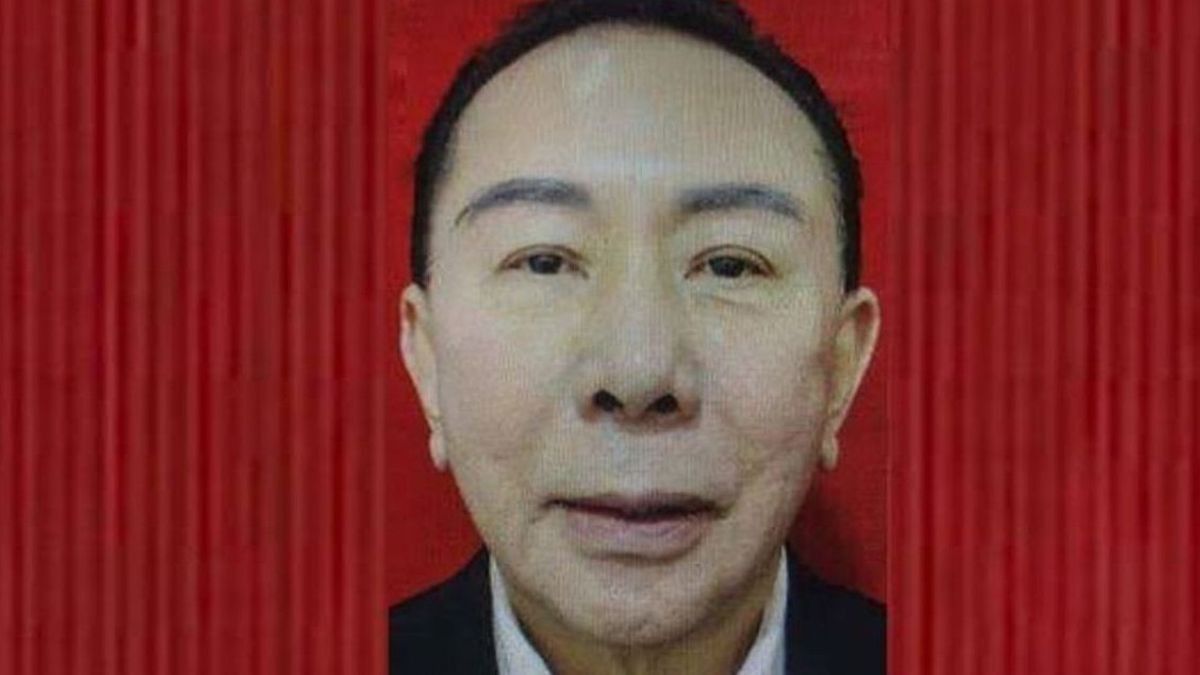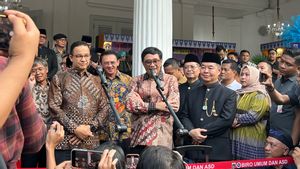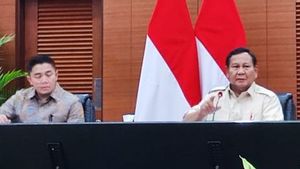JAKARTA - Convicted by the Bank Bali cessie case, Djoko Tjandra, was arrested. Eleven years of Djoko Tjandra's escape as a fugitive ended. Longer than his escape, the Djoko Tjandra case has been rolling for 21 years since 1999. The following is the chronology of the Djoko Tjandra case.
"Yes, that's right (Djoko Tjandra was arrested)," said Head of Public Relations of the National Police, Inspector General Argo Yuwono when contacted, Thursday, July 30.
Djoko Tjandra was involved in a case of transfer of rights which resulted in the replacement of Bank Bali's creditors amounting to Rp904 billion. This case is handled by the Attorney General's Office (Kejagung).
The AGO detained Djoko Tjandra from 29 September 1999 to August 2000. However, a judge at the South Jakarta District Court (PN) acquitted Djoko Tjandra of charges. The South Jakarta District Court considered that Djoko Tjandra's actions were civil, not criminal.
In 2008, the AGO submitted a judicial review (PK) to the Supreme Court (MA) for the Djoko Tjandra case. The judge sentenced him to two years in prison and obliged Djoko Tjandra to pay Rp. 15 million. In addition, Djoko Tjandra's Rp546.166 billion in Bank Bali was seized by the state.
The journey of the Djoko Tjandra caseSeptember 1999, the Bank Bali cessie corruption case began to be investigated based on a report by the Director of Corruption Crimes, Bismar Mannu to the Attorney General. From 29 September to 8 November 1999, Djoko Tjandra was detained by the AGO.
On 9 November 1999, Djoko Tjandra was declared a city detainee by the AGO, before being detained again on 14 January 2000. The detention was carried out until 10 February 2000. On that day, Djoko Tjandra was again declared a city detainee by the Deputy Chairman of the South Jakarta District Court, one day after the Bank Bali cessie case was filed at the South Jakarta District Court on February 9, 2000.
On March 6, 2000, the South Jakarta District Court, through an interim judicial decision, declared that the prosecutor's indictment against Djoko Tjandra was no longer acceptable. March 10, 2000, Djoko Tjandra was released from the status of city detention. The prosecutor then submitted a petition against the High Court.
The new chapter in the Djoko Tjandra case occurred on April 19, 2000. The head of the South Jakarta District Court appointed Soedarto, Muchtar Ritonga and Sultan Mangun as judges who examined and tried Djoko Tjandra. The first name was to be the chief judge of the panel.
The prosecutors' resistance efforts paid off. The trial of Djoko Tjandra, who is the President Director of PT Era Giat Prima, began to roll. Antasari Azhar, who at that time served as public prosecutor (JPU), was charged with committing corruption in the Bank Bali case.
Various facts show that the state lost up to Rp. 904,642,428,369 due to the transfer of the state treasurer to Bank Bali based on the transaction guarantee of PT Bank Dagang Negara Indonesia (BDNI) against Bank Bali.

Djoko Tjandra was charged with one year and six months in prison. He was also charged with a fine of IDR 30 million, a subsidiary of six months in prison and an obligation to pay the case of IDR 7,500. In addition, Rp546 billion in cash belonging to PT Era Giat Prima which was in the Bank Bali escrow account was withdrawn by the state.
August 2000, the Panel of Judges released Djoko Tjandra from all charges. In the decision, the panel of judges stated that Djoko Tjandra's actions were not criminal but civil. Even so, in the verdict, the panel of judges acknowledged that the prosecutor's charges were legally proven. On September 21, 2000, Prosecutor Antasari Azhar filed an appeal.
One year later, June 26, 2001, the Supreme Court panel of judges answered the prosecutor's appeal Antasari Azhar. Djoko Tjandra was released from all charges. The decision making was colored by differences of opinion between judges Sunu Wahadi and M Said Harahap and Judge Artidjo Alkostar until they were finally knocked down through a voting mechanism.
The head of the South Jakarta District Prosecutor's Office sent a letter to the directors of Bank Permata. On June 12, 2003, the letter ordered Bank Permata to submit evidence of Rp546.4 billion in cash. Bank Permata, on the same day wrote to the Indonesian Bank Restructuring Agency (IBRA) asking for instructions. The request was not granted because the Supreme Court's verdict won IBRA.
The Board of Directors of Bank Permata then asked for a fatwa from the Supreme Court regarding the request of the South Jakarta District Prosecutor for Rp546.4 billion. IBRA also asked for an MA fatwa as well as a delay in the execution of the Supreme Court decision. The reason is, there are two conflicting decisions.
On June 25, 2003, the MA fatwa for the directors of Bank Permata was issued. The Supreme Court stated that the Supreme Court could not interfere with the execution of the South Jakarta District Prosecutor's Office. On July 1, 2003, Antasari Azhar, who served as Head of the AGO's Legal Information Center (Kapuspenkum), said that IBRA had obstructed the legal process that was currently being held at the AGO.
March 2004, the South Jakarta District Prosecutor's Office summoned Agus Martowardojo, President Director of PT Bank Permata. The summons were carried out as a follow-up to the execution plan for the disbursement of Rp546.4 billion in funds from PT Era Giat Prima, owned by Djoko Tjandra and Setya Novanto.
FugitiveOctober 2008, the AGO filed a reconsideration (PK) for the Bank Bali cessie corruption scandal to the Supreme Court. The PK submission was granted in June 2009. The PK MA Council at that time was chaired by Djoko Sarwoko. Several other names who sat as members of the assembly were I Made Tara, Mansyur Kertayasa, Komariah E Sapardjaja, and Artidjo Alkostar.
In the PK, Djoko Tjandra was charged with two years in prison, a fine of Rp15 million, and a refund of Rp546,166,116,369 to the state. June 16, 2009, Djoko Tjandra was absent from the AGO's summons. He was given another chance and was again absent from the second summons. Since then, Djoko Tjandra Buron.
Djoko Tjandra allegedly fled to Port Moresby, Papua New Guinea. He is believed to have left Indonesia since June 10, 2009 - or one day before the Supreme Court reads the verdict - using a chartered plane.
In July 2012, Deputy Attorney General Darmono stated that Djoko Tjandra had been granted citizenship by the Papua New Guinea government. At this point, Djoko Tjandra was no longer touched.
The English, Chinese, Japanese, Arabic, and French versions are automatically generated by the AI. So there may still be inaccuracies in translating, please always see Indonesian as our main language. (system supported by DigitalSiber.id)













